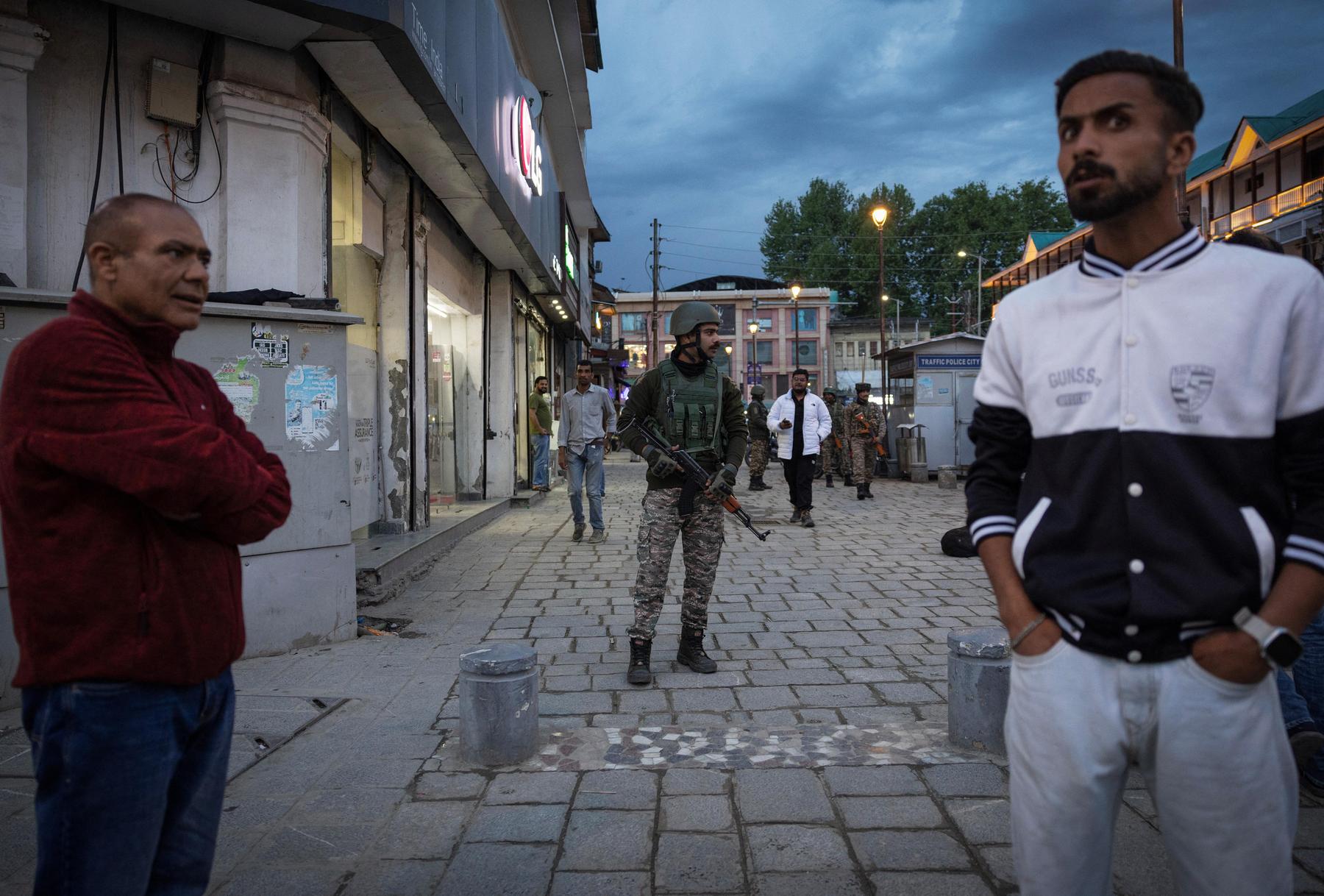India wants to leave Pakistan to « no drop of water » – DiePresse.com

In the Kashmir region, there was a shot between Indian and Pakistani soldiers on Friday night. The UN calls for « maximum reluctance » to avoid escalation of the conflict. However, the risk of war increases.
The conflict between the nuclear powers India and Pakistan continues to come to a head. After a change of shooting between soldiers had occurred in the Kashmir region, Neu-Delhi threatened the neighboring country with drying out. « We will ensure that a single drop of water from the Indus Pakistan, » wrote India’s water minister Cr Paatil on Friday in the short message service X. Pakistan said that it would consider this as a « act of war ».
Paatil referred to the termination of the so-called indus agreement. It is about the use of the Indus and its tributaries, on which both countries – especially Pakistan – rely. The Indus rises in Tibet, flows through the Indian Kashmir area and then long through Pakistan to the mouth of the Arab Sea. The agreement was closed in 1960 and had survived two wars between the neighboring countries.
The most recent escalation had started after 26 tourists were killed by attackers in the north Indian Kashmir Valley on Tuesday. According to Indian authorities, at least some of them are said to have been Pakistanis. An Islamist group of extremists had known for the attack. India blames its neighboring country for what Pakistan rejects. Since then, both have overwhelmed threats and sanctions such as the designation of citizens of the respective neighboring country.
According to a government representative, soldiers fought a nightly shot in the Kashmir region. The shots fell in the Leepa Valley on the control line running through cashmere, said a government representative in the Pakistanically controlled part of the region, Syed Ashfaq Gilani, on Friday.
Civilians were not affected, said the government official of the AFP news agency. The Indian army confirmed the change of shooting and blamed Pakistan. Indian soldiers only « replied », said a spokesman.
India destroyed houses of alleged assassins
Meanwhile, the Pakistani Senate rejected India’s allegations that Pakistan was shared for the attack, in which 26 Indian tourists were killed on Tuesday. The Senate rejects « any dubious and non -opposite attempts to connect Pakistan to the attack in Pahalgam » and condemn a « campaign by the Indian government to slander the Pakistani government », it said in a explanation that was adopted unanimously on Friday. The country is « ready to defend its sovereignty ».
According to the authorities, the Indian army destroyed the houses of the families of two of the alleged assassins on Friday. The Indian Prime Minister Narendra Modi had explained the day before that India would « pursue to the end of the world » and « punish all terrorists and their supporters ». The Indian police are searching for four suspected members of the Pakistani extremist group Lashkar -E -Taiba (Let) – two Pakistanis and two Indians – and exposed a bounty of the equivalent of around 20,000 euros. The Let is by the U.N. classified as a terrorist organization.
UN calls for « maximum reluctance »
In view of the highly tense situation between the two countries, the United Nations called for « maximum reluctance » after a fatal attack on tourists in Kashmir. « We appeal to both governments to practice the greatest possible reluctance and ensure that the situation and the developments we have seen no further deteriorate, » said UN spokesman Stéphane Dujarric on Thursday in New York.
All problems between Pakistan and India should be solved “peacefully”, Dujarric continued. The conflict between the two neighboring countries, which has been smoldering for decades, escalated on Thursday.
The attack on the tourists was carried out on Tuesday in the popular holiday destination Pahalgam, about 90 kilometers from the city of Srinagar. The attackers killed 26 Indians and a Nepalese. At first nobody confessed to the act. It was the most serious attack in Kashmir for more than 20 years. Usually the Kashmir region, which is controversial between India and Pakistan, exerted militant group attacks of lower extent to Indian security forces. From the Indian side, the responsibility was assigned to Pakistan, which supports “cross -border terrorism” in Kashmir.
Mutual punishment measures
Previously, the two neighboring countries had overwhelmed each other with punitive measures on Thursday after the fatal attack: India ordered the designation of all Pakistani nationals until next Tuesday, while Pakistan released Indian diplomats and announced a suspension of trade. The Foreign Ministry in Neu-Delhi announced the closure of the most important joint border crossing and the suspension of an agreement to distribute water resources of several Himalayan flows. The government in Islamabad then announced that every attempt to endanger the Pakistani water resources by exposing the water agreement for the Indus River in Kashmir would be rated as a « act of war ».
The northern Himalayan region of Kashmir, which is mostly inhabited by Muslims, has been shared in 1947 since the independence and division of British India in India and Pakistan. Both countries claim the area completely and have already led two wars to control the mountain region.
High escalation risk
Experts warned of an impending escalation. The risk of escalation is « enormously high », wrote the renowned South Asia expert Michael Kugelman, director of the South Asia Institute at the Woodrow Wilson International Center for Scholars in Washington, on the online platform X. « The world should be very concerned about the current India Pakistan crisis », the governments of both countries are under pressure.
Christian Wagner, expert for India and Pakistan at the Science and Politics Foundation, also spoke of a “new escalation level”. Pakistan has indicated in the past that with the reduction of the water supply, which is threatened with the suspension of the Indus water contract, a red line for the use of nuclear weapons could have been exceeded. The fact that Pakistan is questioning the 1972 Shimla Agreement, which provides for the peaceful cleanup of all controversial questions between the two, is a dangerous intensification of the situation.
It is feared that India’s military could attack alleged bases of terrorist groups or other destinations after the recent attack in Pakistan. Pakistan could then respond to Indian goals with opposites. Even smaller skirmishes on the border course could escalate quickly – with unmistakable consequences. « Unfortunately, it can be assumed that we see another military escalation, » said Wagner. (APA)






